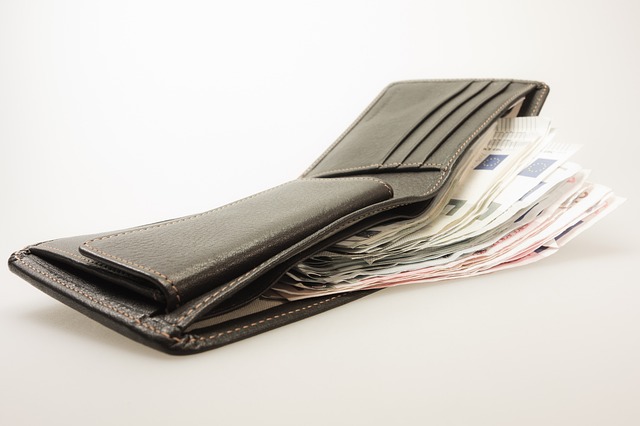The Untold Secrets: Why Your Crypto Wallet Might Be the Key to Future Wealth
Author: Jameson Richman Expert
Published On: 2025-01-23
Prepared by Jameson Richman and our team of experts with over a decade of experience in cryptocurrency and digital asset analysis. Learn more about us.
In the world of cryptocurrency, there's one phrase that echoes louder than others—"not your keys, not your coins." But what does that really mean, and why should you, a budding crypto enthusiast, care about it?
Today, we’ll unravel the secrets of crypto wallets and why mastering them could be your ticket to financial freedom. Whether you’re looking for security, control, or investing potential, understanding the dynamics of crypto wallets is crucial.

What is a Crypto Wallet?
A crypto wallet is a digital tool that allows you to store, send, and receive cryptocurrencies. Unlike traditional wallets that hold physical cash, a crypto wallet holds your cryptographic keys, which are necessary to access your cryptocurrencies on the blockchain. There are two main types of wallets:
- Hot Wallets: These are wallets connected to the internet and are ideal for daily transactions.
- Cold Wallets: These are offline wallets that provide an extra layer of security for long-term storage.
Choosing the right type of wallet hinges on your individual needs, whether you are a day trader or a long-term investor. If you are serious about accumulating wealth, understanding these choices is essential.
Hot Wallets vs. Cold Wallets: Which is Best for You?
Deciding between a hot and cold wallet can feel overwhelming. Here’s a breakdown:
Hot Wallets
Hot wallets are user-friendly and convenient, making them perfect for those who frequently transact with crypto. Some examples include:
- Web Wallets: Accessible via browsers, they are managed by crypto exchanges.
- Mobile Wallets: Apps on smartphones that allow you to trade on the go.
- Desktop Wallets: Software installed on your computer, providing more control than web wallets.
Cold Wallets
If you're looking to invest and hold your assets long-term, cold wallets are a safer option. Examples include:
- Hardware Wallets: Physical devices that store your keys offline, such as Ledger or Trezor.
- Paper Wallets: A physical printout of your keys, though they require careful handling.
Each type comes with its own set of pros and cons, and understanding these will empower you to make the right choice for your crypto ambitions.
The Importance of Secure Wallet Management
Once you've chosen a wallet, managing it securely is crucial. Here are some best practices:
- Backup Regularly: Keep a backup of your wallet's private keys in a separate secure location.
- Enable Two-Factor Authentication: Enhance your wallet's security by linking it to your phone.
- Stay Updated: Regularly check for software updates to ensure you have the latest security features.
Failing to implement these measures could result in loss of funds—a painful reality in the crypto world.

Common Mistakes to Avoid with Crypto Wallets
While managing a crypto wallet, many individuals fall into traps that could easily be avoided. Here’s what to watch out for:
- Sharing Private Keys: Never share your private keys with anyone; they are your ticket to your wallet.
- Using Public Wi-Fi: Avoid accessing your wallet on unsecured networks to reduce the risk of hacks.
- Neglecting Security Updates: Ignoring updates could expose your wallet to vulnerabilities.
Steering clear of these pitfalls will help protect your investment.
Why Wallets Matter in Crypto Trading
Whether you use crypto for shopping, investing, or trading, having a secure wallet is your safety net. Here’s why:
- Control: With a crypto wallet, you have complete control over your funds, unlike keeping your crypto on an exchange where others hold the keys.
- Security: Properly managed wallets provide enhanced security compared to exchanges, which are often targeted by hackers.
- Transaction Flexibility: A wallet allows you to transfer assets as you see fit, without relying on third parties.
While exchanges like Binance are great for trading, always remember that your wallet is ultimately your best defense.
Trendy Wallet Features to Look Out For
With the fast-evolving landscape of cryptocurrency, new wallet features continuously emerge. Here are some trending functionalities to consider:
- Multi-Currency Support: Choose a wallet that supports a variety of coins to diversify your portfolio.
- Decentralized Finance (DeFi) Integrations: Some wallets now allow you to access DeFi services directly.
- In-app Purchases: Consider wallets that let you buy and sell assets within the app, enhancing your trading experience.

The Future of Crypto Wallets
As cryptocurrency adoption continues to grow, we can expect to see advancements in wallet technology. Look out for:
- Biometric Security: More wallets are likely to implement biometric features for better security.
- Enhanced User Experience: Improved interfaces and ease of use as wallet developers focus on mainstream adoption.
- Regulatory Compliance: As governments take notice, wallets may start to incorporate compliance features to adhere to legislation.
Staying informed about these trends will position you well for future opportunities in the crypto space.
Conclusion: Take Control of Your Wealth with a Crypto Wallet
As we’ve seen, crypto wallets are more than just tools for storing your assets—they are gateways to financial independence. With the right knowledge and tools, you can ensure that your crypto journey is not only successful but secure.
So, are you ready to dive into the world of cryptocurrencies? Make sure to choose a wallet that fits your needs, adhere to security best practices, and remain informed about emerging trends. Your financial future may just depend on it!
If you're looking to actively trade while keeping safety in mind, consider using Binance. You can register for an account here and take the first step toward unlocking your crypto potential.